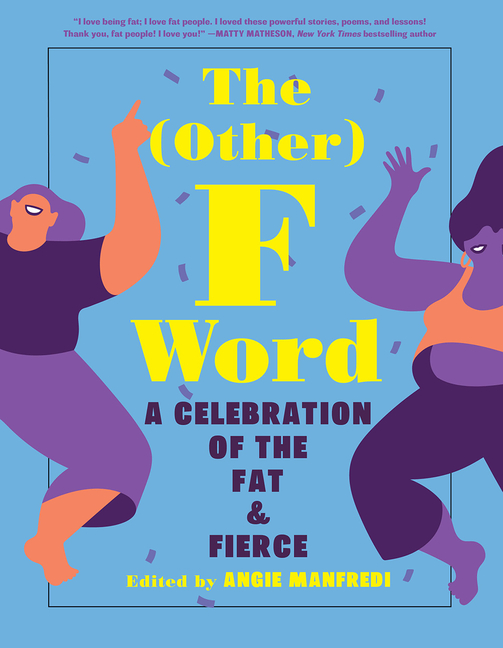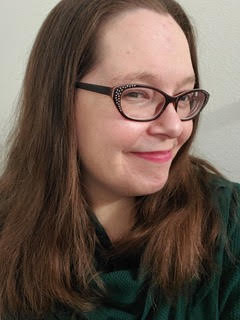Meet-the-Author Recording with Angie Manfredi
The (Other) F Word: A Celebration of the Fat & Fierce |
Angie Manfredi introduces and shares some of the backstory for creating The (Other) F Word: A Celebration of the Fat & Fierce.
Translate this transcript in the header View this transcript Dark mode on/off
Angie Manfredi: My name is Angie Manfredi and I'm the editor of The (Other) F Word: A Celebration of the Fat and Fierce. The (Other) F Word is an anthology, and that means that it has lots of people contributing to it. So it has thirty contributors, the majority of whom are Black, Indigenous, People of Color, and the majority of whom are queer. They have one thing in common and that is they are all fat, and they love and embrace using the word fat to describe themselves. And what they've created in this anthology, which is the first ever young adult fat acceptance anthology, is pieces of art and poems and writing and essays about what it means to live and be fat with the idea that people who pick up this book can come to embrace the word themselves and also learn to accept themselves and love themselves and understand how pop culture views and interacts with their bodies and how they can take control of that narrative.
One of the reasons I wanted to put this book together was because I wanted to tell the person that I was when I was a teenager that she was perfectly made. And I feel that if this book had existed when I was a teenager and I had gotten that message, the entire trajectory of my life would have been different. And it wasn't that I didn't get that message because the book is dedicated to my parents, who, as I say in the dedication, raised me to walk the world with a fearless confidence. And I am certainly a confident person, and I always have been, and I cherish that, but I think I would have had a greater understanding about how the world was viewing and judging my body. And that I think is what would have made the difference, and that is what I really hope readers of this book will take from it. It's not just about, I feel better about myself, which is an amazing goal; it's that it's okay for you to feel the way that you feel about your body, and there are things that you can do to push back on the dominant cultural narratives about how you are, and I think that's a key thing. This isn't just a book about, it's okay to feel how you feel and feel confident and feel powerful. It's much more than that. It's understanding the systematic roots of all of the things that make it hard for you to live as a fat person and how you as a fat person of any age, but especially fat teenagers, can push back and say, "No, it doesn't have to be that way. And I can make it different."
The title of the book is The (Other) F Word. When I sold it, it was called The F Word, just The F Word. And then they were like, "Well, we have to add the Other because the school market will not have a book called The F Word." But the idea with that was that the F Word saying fat and calling yourself fat and not being sad and embarrassed about it was almost obscene because, for so long, you were never supposed to do that.
And so the idea is this is the F Word, and we're going to say it out loud, and we're going to say, "It's not obscene, and it's not forbidden, and it's not bad. And you're not going to use that against me." And I think that idea was also the other guiding part behind this is that to be a part of this anthology, it wasn't just that you were fat, it's that you knew you were fat, you said you were fat, and you didn't feel bad about it.
But more than that, it's also about sometimes it feels bad. And that was another thing I wanted the anthology to really be about is that we didn't want it to just be like, "You're never going to have struggles. You're never going to feel bad." We want it to be realistic, that some days you hate yourself and some days you feel bad, but you can still keep going. And I think we really all wanted to avoid that toxic positivity and that frame of "It's body positive. You're always going to be positive." You're not going to be positive all the time, but that's okay, and it doesn't mean that people have the right to treat you as less then. People don't get to treat you badly if you don't feel great about being fat. It's not an either-or situation. So that's another thing that I've heard sometimes, I've heard something people say about this book like, "Man, some of these were really hard to read, or it felt repetitive sometimes, or it was too negative." And that's because we wanted to show the fullness of that experience as well, that this is hard, but there can be joy within that.
This Meet-the-Author Recording with Angie Manfredi was exclusively created in June 2021 by TeachingBooks with thanks to Abrams.




